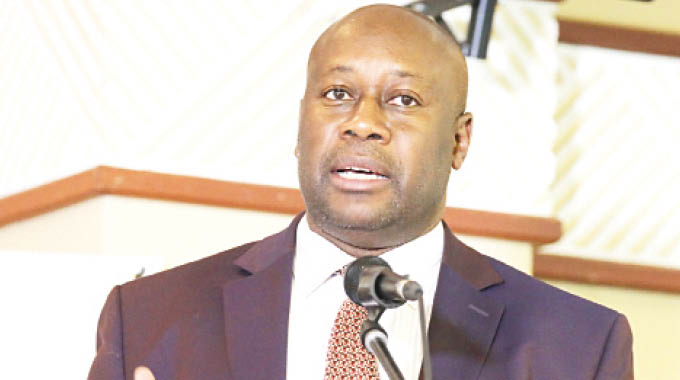Time up for idle mining concession users

Oliver Kazunga in Hwange
MINES and Mining Development Minister Winston Chitando yesterday said time is up for mining title holders whose concessions have been lying idle or underutilised as Government will in the next four months repossess the claims.
Recently, Government proclaimed the “use-it-or lose it” policy after noting that some prospective investors awarded the Special Grants (SG) in different mining sub-sectors of the economy were holding onto the claims for speculative purposes.
Such behaviour, he said, was retrogressive as the country was being deprived of its potential to exploit its vast mineral resource base.
Speaking during a tour of some colliery firms in Hwange, Matabeleland North province, Minister Chitando who was accompanied by his Finance portfolio counterpart, Professor Mthuli Ncube, said Government was also looking forward to re-sizing some of the concessions with huge resource base and inordinate life spans and allocate them to potential investors.
“So, the use-it-or lose-it policy is being implemented and I can certainly assure you that by end of August or September, there will be a number of which will be realised. But I think more importantly, in terms of the use-it or lose-it policy, we have people who have got the mining concessions, which concessions in terms of the resources, it will take them 500 years to mine.
“It may be a gold, platinum asset or it maybe coal asset, so we will be cutting all the concessions so that we allocate to others,” said Minister Chitando.
The impending decision by Government to resize some of the concessions held by investors who are already on the ground comes in the wake of the realisation that some of the potential investors in the coal sector, for example, were failing to realise their full potential as well as beneficiate the mineral due to shortage of raw materials.
The firms, which the two ministers visited are Afrochine’s coking plant project, Zimbabwe ZhongXin Colliery Company, Jinan Coking Coal Project and South Mining Coking Coal Project.
In separate briefings to the ministers, officials from some of the firms highlighted that they were not adequately supplied with coal by the local producers to feed into their coking plants.
It was against this background that some of the companies with coking plants have applied to Government for coal concessions.
The tour of the collieries by the two ministers is a precursor to President Mnangagwa’s visit of mines in Hwange district tentatively within the next four weeks.
Minister Chitando said their visit with Prof Ncube was also a fact finding mission of the challenges bedevilling the firms in the coal sector as well as to apprise Prof Ncube about the mining sector.
In an interview with journalists, Prof Ncube said:
“My office being in charge of the taxes as you can imagine, I am always trying to see where we can fine tune the tax incentives for investment.
“Like what we did in the diamond sector by making sure that the royalties are tax deductive, so whatever we can do with the tax fund was to support the mining sector looking at issues like export incentives.”
Last year, President Mnangagwa launched a mining industry strategic road map to build a US$12 billion sector by 2023.
The strategic road map, which is anchored on beneficiation recognises the coal sub-sector as one of the minerals, which Zimbabwe can leverage on as the country also targets an upper middle income economy by 2030.
Under the road map, coal, chrome, diamond, iron and steel are envisaged to contributed US$1 billion. The projected increase represents a 344 percent jump from US$2,7 billion achieved in 2017.
Government has also identified mining houses undertaking various projects towards the attainment of the target while negotiations with others are in progress.
Already, the mining sector is critical in generating foreign currency, contributing about 70 percent of the country’s forex earnings.
A combination of picking low-hanging fruits or quick-win projects with a medium-term impact as well as a longer-term impact means Zimbabwe could see the lift soon. — @okazunga










Comments